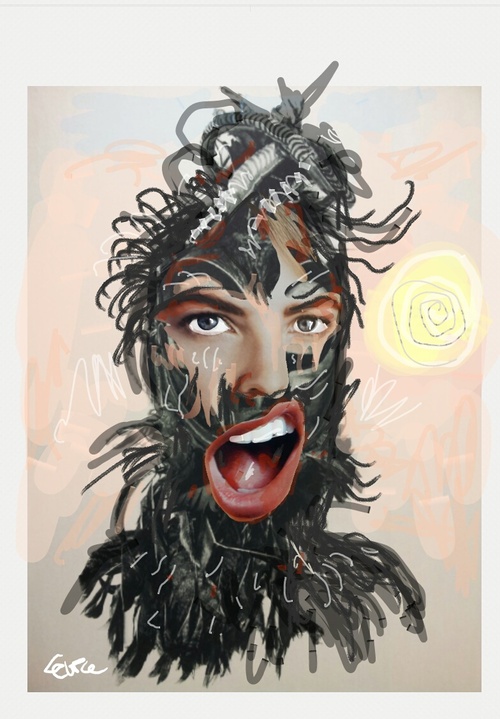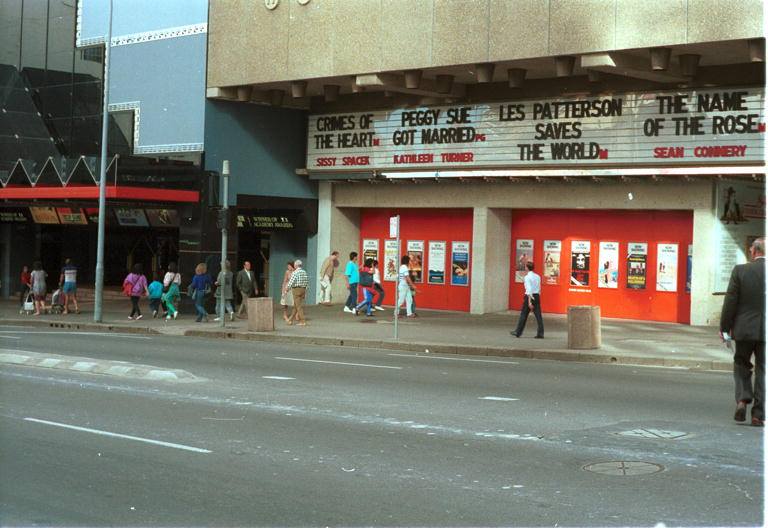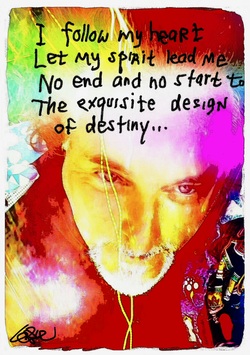When I was fourteen or fifteen my father formally called me into their bedroom for a discussion. I was having a few issues at school - trouble with accepting authority, occasional truancy, playing class larrikin, detentions and suspensions. My grades weren't great, I rejected the concept of homework (they can make me go to school but once I am out, my time is my own), I chose not to participate in after school sports or clubs.
Not your ideal student, I now see quite clearly. But at the time, I was instinctively rebelling against what I perceived to be injustice and domination. I did not choose not belong. I did not belong. The rigid, intense, result-oriented system did not integrate well with my free spirited, easy going nature. Teachers attempts to force me to comply only resulted in a stronger sense of anarchy in my young spirit.
I wish I had been there, the me now, to support and nurture that young fellow. He wasn't a trouble maker, not really, he just had a sense of freedom and fun. He truly had not interest in chemistry or physics class. He knew that studying those subjects, as well as Latin and Religion, were a waste of his time. I would have said - if he has to be locked up here, why not just let him do art and English, drama and choir all day. And a long lunch. Maybe leave a bit earlier. Come in a little later. Four days instead of five.
I know now that the me then, was essentially the same as the me now. I wasn't someone who was going to be changed or melded by a bunch of strangers. Especially not by austere, sometimes deranged, sadistic, even perverted, assholes.
In the few subjects I had good hearted teachers (English, Art, Geometry, French) my attention giving and grades were pretty good. I just found it impossible to tolerate bullies and dictators.
My father, bless him, was a very different kind of person to me. He was an achiever, he thrived on rules and structures, he did not mind following, behaving. I was, in his estimation; a failure. If not already, then destined to be one if I kept up with my rebellious behaviour. I know this because he told me so.
"What do you want to do with your life? What is your plan? What do you want to become?" were the questions I was asked that evening, at that meeting, which felt serious and important, formal. Both my parents were there but my father was leading. They were worried about me, he said. The school had rung again. (The truth is mostly I tried to keep out of trouble, ie, not get caught. And mostly, I succeeded. The reprimands and punishments I received were a minor fraction of my actual infractions. So, I was actually, in my own way, quite canny and intelligent. I also was aware of having been selected for and invited to attend a special school for advanced intelligence children after testing. I decided I did not want to go, when given the choice, because I did not want to leave behind my friends. Regardless, we soon left Sydney for Tokyo.)
"I want to make movies", I replied, after giving it some thought. The answer felt right, in fact, it felt like the only possible answer with any veracity. At that stage of my life, I also liked collecting comics, listening to radio drama, drawing, writing stories... but I loved movies. They were powerful and captivating things. Enthralling. If I had to be involved in some sort of formalised activity - well, that would be it. At least it wouldn't be boring.
"Movies?" My father scoffed. "How can you say that you want to make movies? What makes you think you can make movies?"
Oh. I have to answer.
I had actually made a few Super 8mm films by then, but nothing elaborate. I did not have any feature credits to my name... In fact, I did not even know exactly how the process worked - screenplay, rehearsals, actors, director, producers, art department - I just instinctively responded to the question with honesty and optimism.
"I love movies." I said. And do what you love, right? Wrong.
"Just because you love movies doesn't mean you have any talent or will ever be able to work in movies. It's a very specialised industry. I'm talking about work. A job. What kind of job are you going to be able to do when you leave school? If you keep up the way you are, you'll be working in Woolies at the checkout. Is that what you want?"
"Er, no." I replied. (Thinking: it wouldn't be that bad. Standing behind the till. Playing with the machine. Chatting with people...) But I said no. And it wasn't my dream, nor my goal.
"If you don't start behaving and doing better at school, you will end up nowhere, with very little..."
The meeting was adjourned soon after. I agreed to try harder. I accepted that my answer to the question of what I wanted to do with my life was not acceptable.
I feel sad now. If only I had been encouraged. If only in that rare, important moment, when I was point blank asked what I wanted to do with my future, I had been listened to, heard. Things could have gone so differently. Why ask a young boy that question then squash his heartfelt, impulse response? Obviously it did not fit in with my father's agenda and world view. It was not about my life. It was about his life. And about curtailing the disturbance that my behaviour was causing. And, just like the teachers I hated, trying to make me into something I wasn't.
That moment was a very long time ago. That was the moment that a father inadvertently condemned his son to a life lead with an attitude of underlying defeatism, surrender, displacement.
------------------------------------------------
Cut to me at twenty. At art school. Living in Sydney. I still loved movies. A year before, I had been to every cinema complex along the main street in Sydney seeking employment. Just fill out the form, I was told by unenthusiastic lady ticket sellers. I never heard back, of course, from any of them. It was a closed shop. Those jobs paid well, vacancies were rare and often handed to friends and connections. Being an usher was considered working on the fringe of show business. It required wearing a bow tie and a fancy jacket, dealing with the public with class and efficiency. Nobody walking in off the street was going to get in. That much became clear. Still, I really wanted to work in a movie theatre. Better yet, a multi-theatre complex.
One afternoon, while with my brother and my girlfriend, perusing the books at the old Gould's book shop in it's original location in George Street, directly opposite Hoyts cinemas before heading downstairs to Crystal Palace to play some snooker, I had what I can only describe as a moment of pure, unfiltered inspiration. I was zapped, nudged by some energy, given a specific mission.
"Wait here guys, I'll be back soon." I said, and ran out the door. I crossed the street. Entered Hoyts. "I am here to see the manager!" I pronounced with premeditation.
"Do you have an appointment?" the lady asked.
"Yes!"
"What's it in regard to?" she asked.
"About working as an usher."
She checked her big red diary. Slight frown.
"You're a bit early." She harumphed and climbed off her high stool. "Wait here." She trudged half way down the corridor of ticket sellers and disappeared into a doorway. She reappeared with a message. "Mr Cesarro will be out in a minute."
Whoa. I can't exactly say things were going to plan, because I didn't exactly have a plan. Well, I did. I wanted to get a job there. But I hadn't exactly anticipated speaking to a manager. He appeared, beckoned me. We went in through some glass doors, then another security door to his office.
Suddenly, I was being interviewed for the position. My instincts were honed enough, from years of talking my way around a subject and out of trouble at school, that I was able, much to my surprise, to charm my way into an immediate job offer. I was to start in a few days time. Two shifts a week, Friday and Saturday nights, to begin with. I was to go immediately to see the head usherette, Laurel, and get fitted for a bright red jacket and receive a call sheet, instructions and a torch. I walked across the lobby, almost floating. I was nearly there. One final test to get through. The manager had called ahead, so she was expecting me. It all went smoothly. I winged it. I was in.
Mook and Bianca could not believe it. How??? Really? Yes, it happened. They were happy for me - and it also meant free movies for them, at least twice a week. And I loved it, too, even more so. I had accessed an environment, an institution that I had long desired to infiltrate - the dark pantheon of cinematic wonders, the arena of entertainment, manufactured fantasy. It wasn't yet the level of actually making movies - which was still my ultimate goal - but I had forged through the first protective industry layers of obstruction, using will and wit and temerity. I was no longer just a paying member of the public, I was in the club. On the fray of show biz. Movies were free, now - all you can watch. Not just at Hoyts, but due to a reciprocal agreement, at any and every cinema across the city. Not only that, but I would be surrounded by cinemas (seven), immersed in film, connected more closely to the world of my early predilection. Finally.
I was working in movies!


 RSS Feed
RSS Feed

